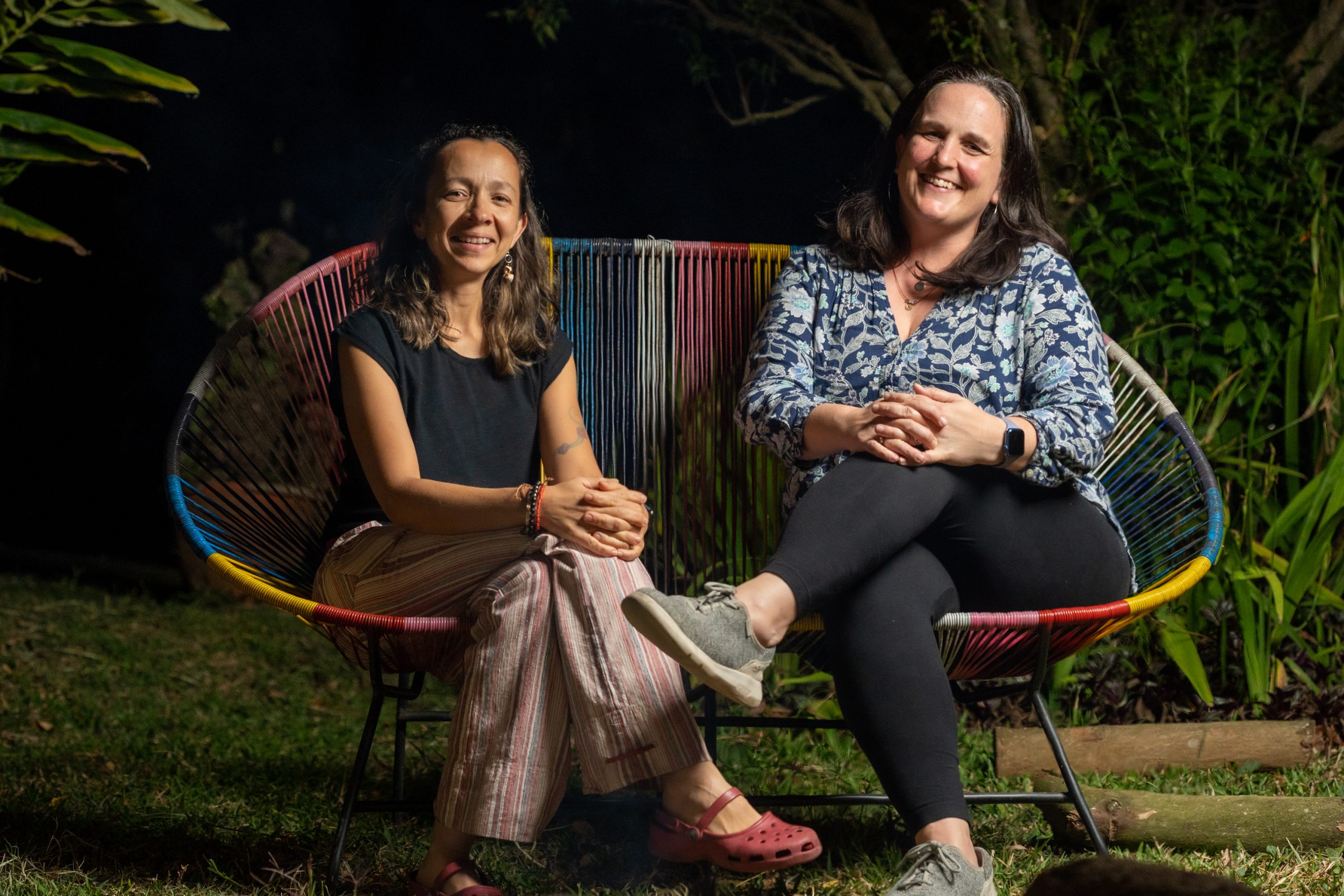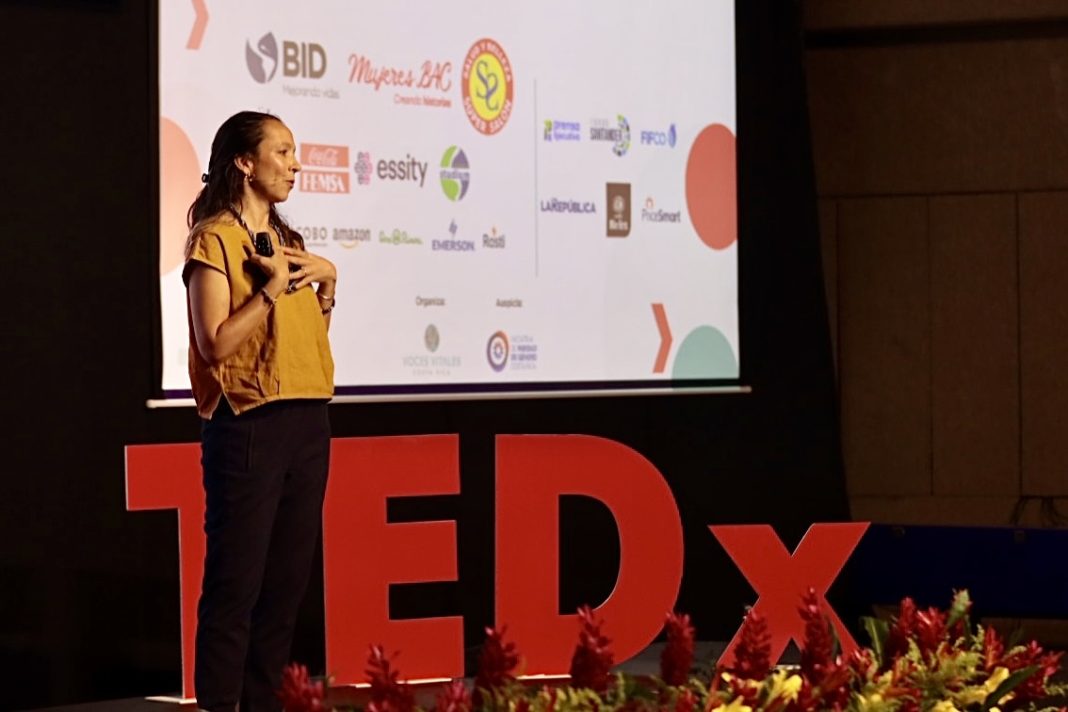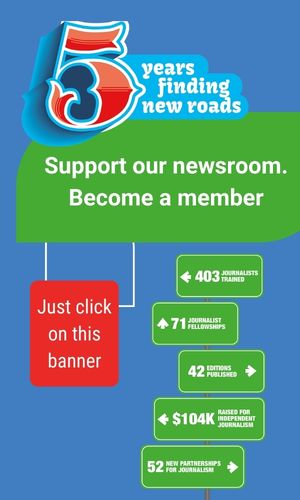Adapted from a speech by Mónica Quesada Cordero, co-founder of El Colectivo 506, on Nov. 23 at TEDxLlorente Women 2023.
Which of the following statements best describes you?
I have a healthy relationship with the news. I enjoy the process of staying informed.
I do watch, read, or listen to the news, but only from time to time—and I avoid many topics.
I do consume news, but only from certain sources. I avoid many others.
I avoid the news. All it does is make me feel depressed or hopeless.
If you fall into those latter categories—avoiding certain topics or sources, or avoiding the news altogether—you’re not alone. Far from it. In a 2023 study from the Reuters Institute, 36% of interviewees around the world said that they actively avoid the news. They do this by steering clear of certain sources or topics, or simply limiting the time they dedicate to the news.

In the case of Costa Rica, a 2023 study by the Freedom of Expression and Right to Information Program and the Center for Research and Political Studies, both at the University of Costa Rica, showed that 45.86% of people interviewed have avoided the news recently.
There are many reasons why Costa Ricans in the study said that they avoid the news, but many indicated that it affects their mental health, and it’s very negative. These two categories add up to 26.7%.
I’ve had an up-and-down relationship with the news myself. In fact, when it comes to the statements at the beginning of this column, I’ve answered “yes” to all of them, depending on the day and the phase of my life.
At the age of 24, I got my first job as a photojournalist. Since then, I’ve practiced my profession with a feeling that I had to get out of a bad relationship. Yes, just like that boyfriend that you know isn’t right.
This graph more or less describes that relationship. It looks like a roller coaster.

But three years ago, at the age of 40, I finally found peace within my love affair with the news. I founded this media outlet with my friend and colleague Katherine Stanley, whom I now affectionately call my “work wife.”
In founding El Colectivo 506, Katherine and I joined a movement that connects our need for information—that basic service that “the news” fulfills—with our need to counteract the impact it has on our mental health, and the negativity it typically inspires.
That movement is called Solutions Journalism. The idea came from a group of journalists from the United States who founded an organization called the Solutions Journalism Network, which seeks to push journalists and media outlets to take a step further when doing their very important work.

What is that step? It’s the step that comes after a complaint has been made or a problem has been documented. It’s that one step further to find the responses that are being implemented, somewhere, to address the reported problem. In other words: Solutions journalism is the rigorous investigation of answers to the problems that concern us. It demonstrates that although the problem exists, something can be done to address it.
And why is this important? Well, because it gives us hope.
I want to clarify that solutions journalism presents the responses to a problem with all their limitations and difficulties, because all too often, responses are presented as a “silver bullet” or “magic potion.” We all know that these narratives aren’t real or complete, and solutions journalism makes that visible.
Since Jan. 1, 2021, when El Colectivo 506 started practicing solutions journalism, we have applied it to issues of education, environmental protection, economics and entrepreneurship, health, sports, gender equality, animal welfare, and mental health. We’ve also worked with the Solutions Journalism Network to search for and review solutions journalism stories throughout Latin America.

Our last edition, led by Katherine, was about the mental health of people living with HIV. During this investigation, I came to realize that people with the Human Immunodeficiency Virus who decide to stop their treatment, thereby putting their lives at risk, actually have quite a lot in common with people who avoid the news. I know that this is a very strange and controversial statement, but allow me to explain.
Research conducted by Katherine showed that people living with HIV who are misinformed about the virus often think, erroneously, that they have AIDS, sometimes known as advanced HIV; that they are going to die; and that they can never love again, be intimate, or start a family. They believe they can’t even think about the future, much less build a future.
Are you starting to see the similarities? In 2022, the Reuters Institute Digital News Report had this to say about why people avoid the news: 16% of respondents said there is nothing they can do with the information. Another 36% said that “the news has a negative effect on their mood.”

I think that, in the end, we have a bad relationship with the news because we think that there’s nothing to be done, and that we are doomed to disaster. As we say in Spanish, “eyes that do not see, heart that does not feel.”
When it comes to HIV, it turns out that something as simple as having the right information and the right support can help people understand that their disease is surrounded by stigma. This bad reputation is caused by widespread misinformation. The truth is that if you commit to taking your medication, you will not die from advanced HIV. You can reach such low levels of the virus in your blood that they are undetectable by standard lab equipment. At this level, you cannot infect anyone. You can live a normal life.
Now let’s apply this formula to journalism and our relationship with the news.
Journalists have a reputation for only telling bad news. That bad news must be communicated, but when we practice solutions journalism, we don’t stop there. This allows us to improve our relationship with our audience.
Furthermore, by not stopping there, journalists have the opportunity to help change the way we discuss the problems that affect us, moving from a fatalistic and angry discussion to one that shows possible paths and encourages proactive conversations.
These conversations allow all of us—audiences, journalists, and the protagonists of our news stories—to begin to imagine and act to achieve change.

Would you like to have this kind of relationship with the news?
Do you think that this path to staying informed and involved with the problems that surround us sounds a bit more pleasant?
Do you think that informing ourselves in this way might help us believe that we can build a better present and future?
Does this make you want to find the media outlets that practice this kind of journalism—and encourage them to keep going?
Today, I invite you to start looking for this type of news. And when you find those media that are doing it, support them. That way, we can work together to change the way we talk about the problems that affect us.
Whether we like it or not, staying informed is an essential part of a healthy life. We need information to stay well, physically and mentally, in our body and in our communities and in our countries. We cannot turn our backs on the news, just as a person with HIV cannot throw away their treatment.
We need the media. Our journalists are guard dogs that stand watch, that make sure things are being done right. But we also need hope, and we need solutions journalism. It leaves us informed and inspired to imagine something better—and to work for it.






